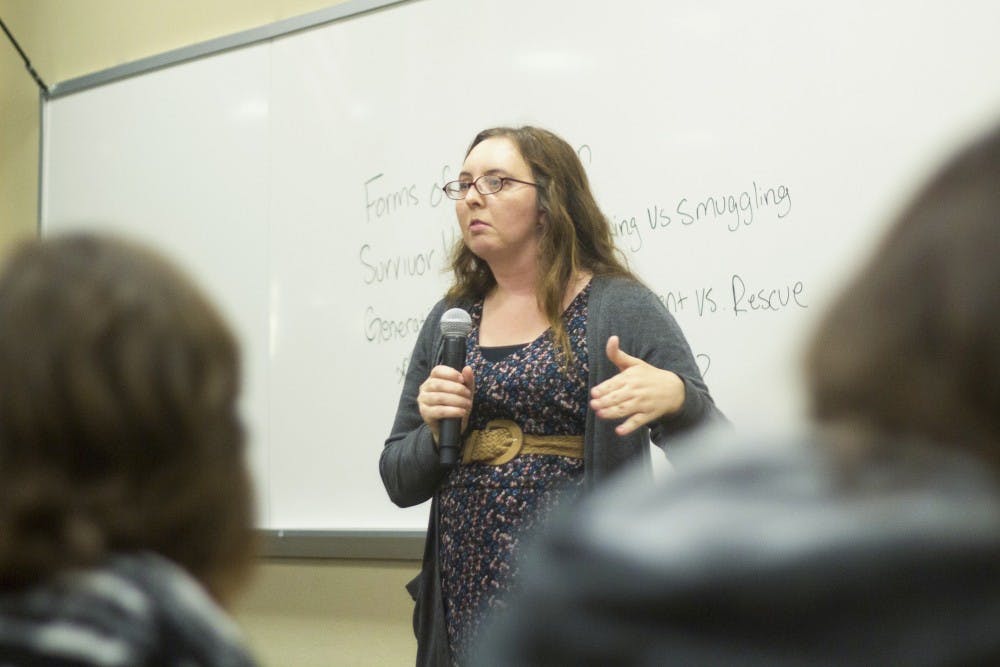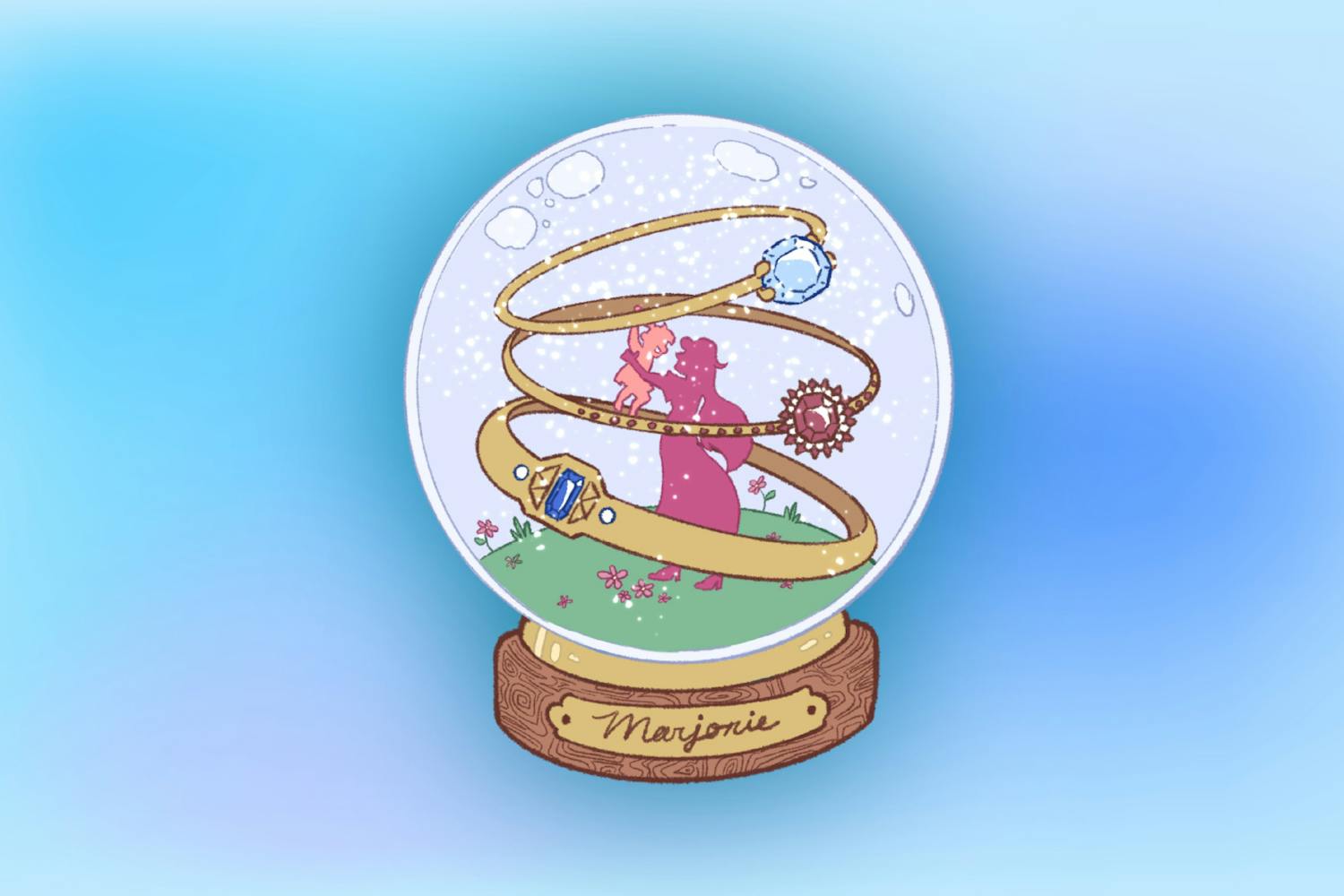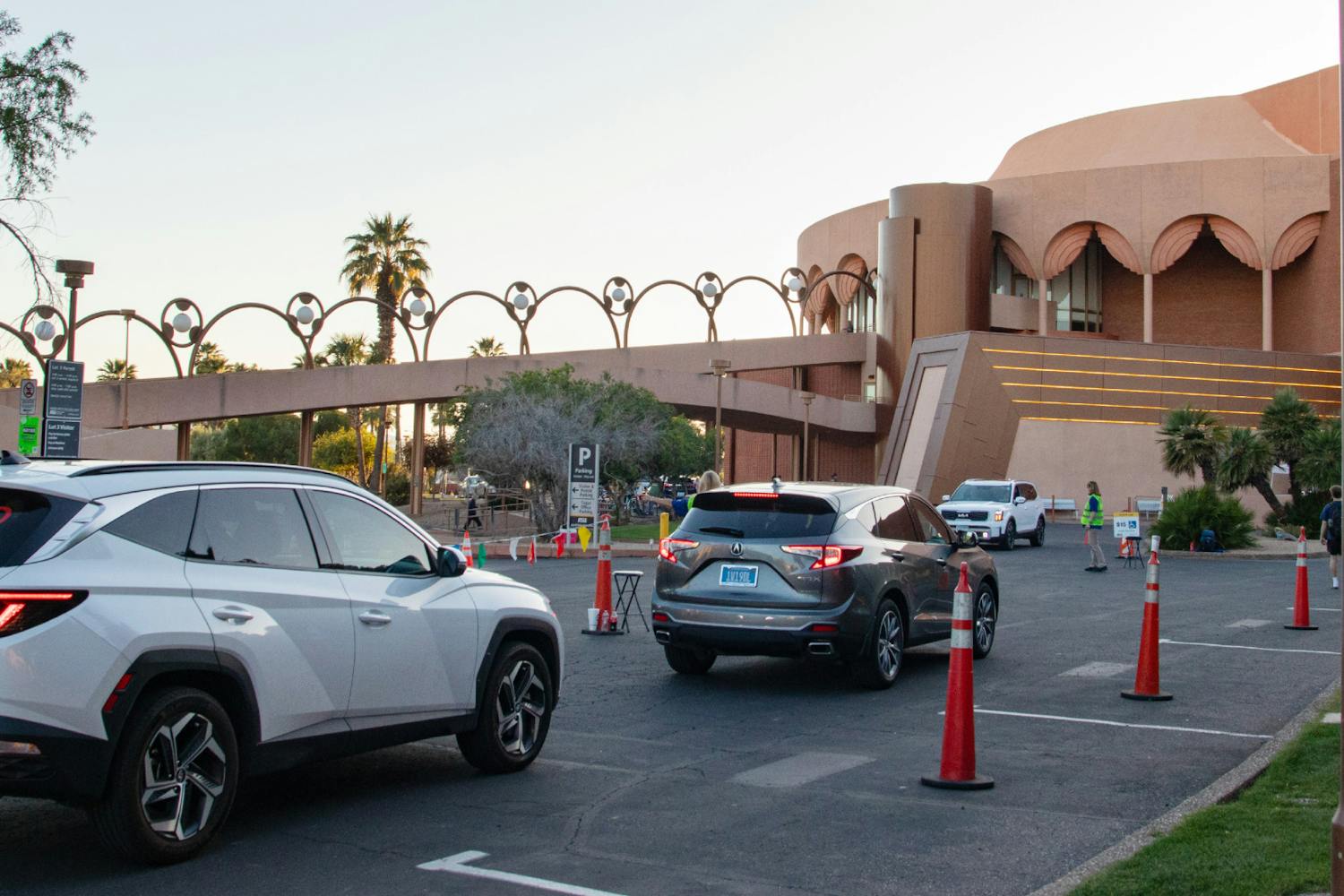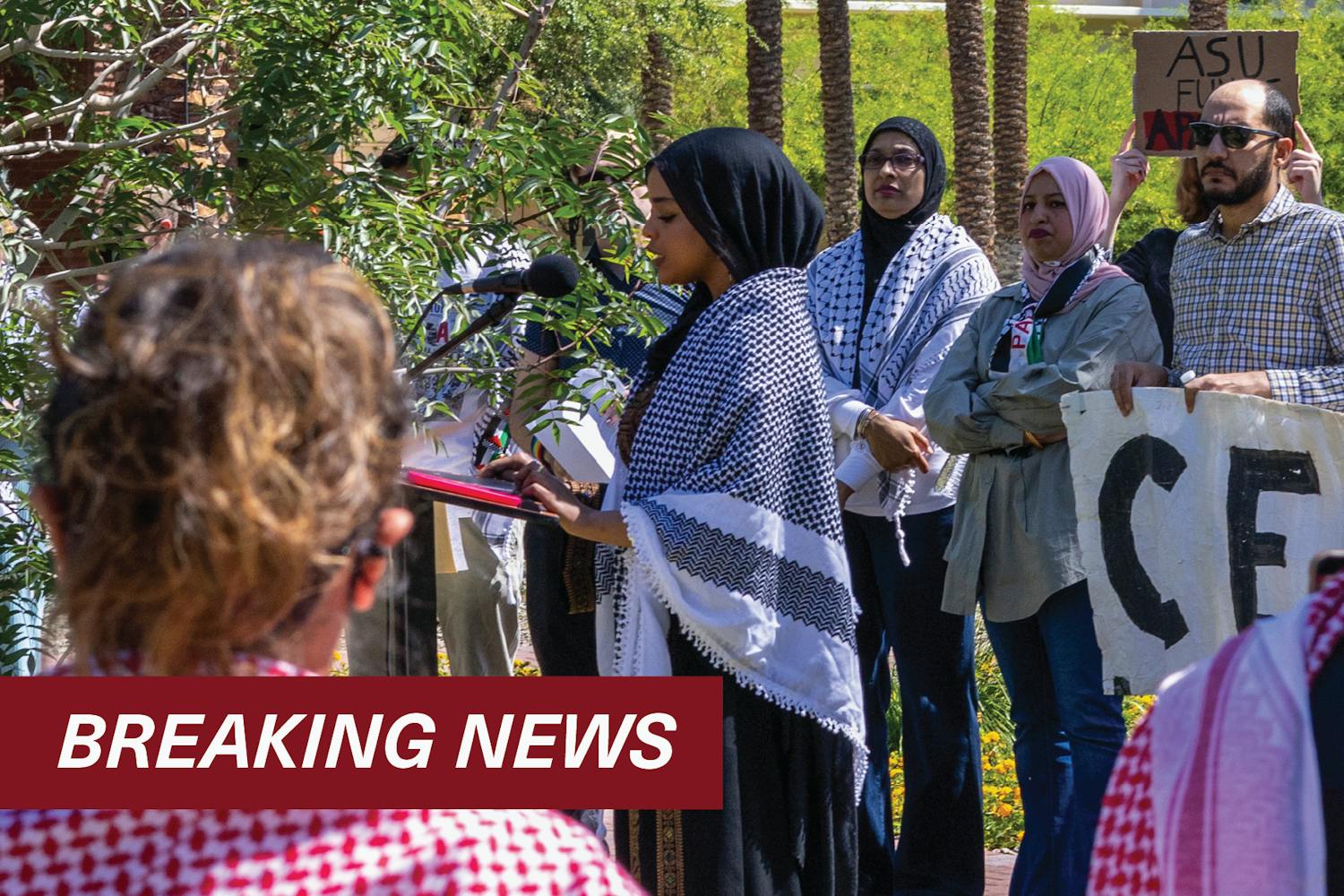 A sex trafficking awareness poster seen during the Trafficking Awareness Week in Tempe on Jan. 29, 2015. A domestic victim of trafficking turned author and award-winning advocate, Savannah Sanders, spoke at ASU to promote awareness of the largely unknown issue as part of the week’s programs. (Jonathan Galan/The State Press)
A sex trafficking awareness poster seen during the Trafficking Awareness Week in Tempe on Jan. 29, 2015. A domestic victim of trafficking turned author and award-winning advocate, Savannah Sanders, spoke at ASU to promote awareness of the largely unknown issue as part of the week’s programs. (Jonathan Galan/The State Press)Award-winning advocate Savannah Sanders publicly addressed her sex trafficking experiences in hopes of encouraging awareness for fellow survivors on Jan. 19 for ASU’s Sex Trafficking Awareness Week.
Sanders, an ASU social work alumna, endured exploitation, drug addiction and trafficking at the age of 16. She now shares her story to increase support for other victims recovering from abuse.
“The No. 1 thing I want is for people to identify if they’ve been abused and to share their experiences for the first time because me being able to share my experiences for the first time was the first step in healing,” she said.
However, Sanders hopes her story reaches more than fellow survivors.
“Trafficking, to me, is just one issue of social justice –– one piece of a very big puzzle,” she said. “I really do feel that there’s not a single person in the room who cannot relate to some aspect of my story or at least help someone who has experienced it.”
Sanders’s story served as the closing event for the week-long awareness strategy hosted by ASU’s All Walks Project and The McCain Institute. Erin Schulte, global studies sophomore and All Walks co-founder, said the speech offered a personal account of the national issue.
 Savannah Sanders speaks to students during the Sex Trafficking Awareness Week in Tempe on Jan. 29, 2015. Sanders, a domestic victim of trafficking turned author and award-winning advocate, spoke at ASU to promote awareness of the largely unknown issue as part of the week’s programs. (Jonathan Galan/The State Press)
Savannah Sanders speaks to students during the Sex Trafficking Awareness Week in Tempe on Jan. 29, 2015. Sanders, a domestic victim of trafficking turned author and award-winning advocate, spoke at ASU to promote awareness of the largely unknown issue as part of the week’s programs. (Jonathan Galan/The State Press)“The main point of this week is to connect survivor voices with students, so being able to have an event where students can come and hear her story (is) incredibly important,” she said. “I don’t think there can be anything better for raising awareness than hearing it from an actual survivor.”
Schulte said she hopes to increase sex trafficking awareness among college students.
“College students are an at-risk population and … the future leaders of the world,” she said. “I know that, up until recently, many people didn’t know about sex trafficking, and now, a lot more people are starting to take notice.”
According to the National Human Trafficking Resource Center, there were 3,609 sex trafficking cases in 2013. However, statistical evidence is difficult to analyze when the issue is largely concealed, Schulte said.
“It’s such a hard thing to measure because, by definition, sex trafficking survivors are kind of a hidden population,” she said. “It’s hard to know exactly how many there are. We can look at arrests of prostitution and make guesses, but (we) really don’t know.”
Some researchers argue events like the upcoming Super Bowl increase sex trafficking demand, though Jessica Hocken, accounting sophomore and All Walks co-founder, said these claims are uncertain.
“We were thinking of making the event the week of the Super Bowl, but we decided on the week (before) because we didn’t want to make this direct tie to the Super Bowl,” she said. “This is a problem happening regardless of whether there’s a sporting event here. … It’s just more known.”
Hocken said she thinks this year’s Sex Trafficking Awareness Week can change the way ASU thinks about sex trafficking.
“We can all stand together and say no to domestic sex trafficking,” she said. “What we’re trying to do is say that ASU is standing against domestic sex trafficking.”
Cindy McCain, founder of the McCain Institute, said there should be more national awareness.
“I’d like to see this branch out to other campuses…and across the country,” she said. “I’d like to see every campus have something like this.”
Reach the reporter at aplante@asu.edu or follow @aimeenplante on Twitter.
Like The State Press on Facebook and follow @statepress on Twitter.




